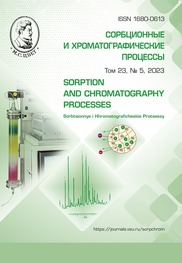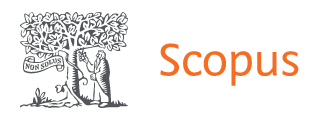Прополис: химический состав, антиоксидантная активность и влияние на здоровье человека
Аннотация
Прополис использовался человеком с древнейших времен,был известен в Египте, Греции. Прополис содержит много биологически активных соединений: антиоксидантов флавоноидов, фенольных кислот, витаминов и др. Прополис за счет содержания полифенолов-антиоксидантов обладает высокой антиоксидантной активностью и многими лечебными эффектами: антиканцерогенным, противовирусным, противодиабетическим, антибактериальным. Прополис признан терапевтическим средством с кардиопротекторными, антивоспалительными свойствами. В работе приведены сведения об антиоксидантной активности прополиса из 8 регионов Башкортостана, самой медоносной республики РФ.
Скачивания
Литература
Bogdanov S. Propolis: composition, health, medicine: A Review, Bee Prod. Sci. 2014; 1-40.
de Groot A. C. Propolis: a review of properties, applications, chemical composition, contact allergy, and other adverse effects, Dermatitis, 2013; 24: 263-282.
Anjum S.I., Ullah A., Khan K.A. Composition and functional properties of prop-olis (bee glue): A review. Saudi J. Biol. Sci. 2019; 26: 1695-1703.
Pereira R.L.R., Salatino M.L.F., Salatino A. Production of propolis and geopropolis by stingless bees. MOJ Food Process. Technol. 2020; 8: 1-3.
Stojanovic S., Najman S.J., Bogdano-va-Popov B., Najman S.S. Propolis: Chemical Composition, Biological and Pharmacological Activity – A Review. Acta Med. Median. 2020; 59: 108-113.
Kuropatnicki A.K., Szliszka E., Krol W. Historical aspects of propolis research in modern times. Evid. Based Complement.Altern. Med. 2013; 964149.
Braakhuis A. Evidence on the health benefits of supplemental propolis. Nutrients 2019, 11, 2705.
Santos, L.M.; Da Fonseca, M.S.; Sokolonski, A.R.; Deegan, K.R. Propolis: Types, composition, biological activities, and veterinary product patent prospecting. J. Sci. Food Agric. 2020; 100: 1369-1382.
deMendonca I.C.G., Porto I.C.C.D.M., Nascimento T.G.D. Brazilian red propolis: Phytochemical screening, antioxidant activity and effect against cancer cells. BMC Comple-ment. Altern. Med. 2015; 15: 357.
Andrade J.K.S., Denadai M., de Oliveira C.S., Nunes M.L., Narain N. Evalua-tion of bioactive compounds potential and anti-oxidant activity of brown, green and red propo-lis from Brazilian northeast region. Food Res. Int. 2017; 101: 129-138.
Masek T., Perin N., Racane L., Cindric M., CipcicPaljetak H., Peric M., Matijasic M., Verbanac D., Radic B., Suran J., Starcevic K., Chemical composition, antioxidant and anti-bacterial activity of different extracts of poplar yypepropolis, Croat. Chem. Acta, 2018; 91: 81-88.
Lagouri V., Prasianaki D., Krysta F., Antioxidant properties and phenolic composition of Greek propolis extracts, Int. J. Food Prop., 2014; 17: 511-522.
Touzani S., Al-Waili N., El Menyiy N., Filipic B., Pereyra A., El Arabi I., Al-Waili W., Lyoussi B., Chemical analysis and antiox-idant content of various propolis samples col-lected from different regions and their impact on antimicrobial activities, Asian Pac. J. Trop. Med., 2018; 11: 436-442.
Hegazi A.G., Abd El Hady F.K., Abd Allah F.A. M. Chemical composition and antimicrobial activity of European propolis, Z. Naturforsch. 2000; 55: 70-75.
Huang S., Zhang C.P., Wang K., Li G.Q., Hu F.L. Recent advances in the chemical composition of propolis. Molecules. 2014; 19: 19610-19632.
Vivar-Quintana A.M., Gonzalez-Martin M.I., Revilla I., Betances-Salcedo E.V., Determination and quantification of phenolic acids in raw propolis by reversed phase high performance liquid chromatography. Feasibility study for the use of near infrared spectroscopy, J. Apic. Res., 2018; 57: 648-656.
Volpi N., Bergonzini G. Analysis of flavonoids from propolis by on-line HPLC-electrospray mass spectrometry, J. Pharm. Bi-omed. Anal., 2006; 42: 354-361.
Safti L., Persuri C.Z., Fornal E., Pavlesic T., Paveli S.K. Targeted and untargeted LC – MS polyphenolic profiling and chemometric analysis of propolis from different regions of Croatia, J. Pharm. Biomed. Anal., 2019; 165: 162-172.
Isidorov V.A., Szczepaniak L., Bakier S., Rapid GC/MS determination of botanical precursors of Eurasian propolis, Food Chem. 2014; 142: 101-106.
Kasiotis K.M., Anastasiadou P., Papa-dopoulos A., Machera K. Revisiting Greek propolis: Chromatographic analysis and antiox-idant activity study. PLoS ONE, 2017: 12.
Kasote D.M., Pawar M.V., Bhatia R.S., Nandre V.S., Gundu S.S., Jagtap S.D., Kulkarni M.V. HPLC, NMR based chemical profiling and biological characterisation of Indi-an propolis. Fitoterapia. 2017; 122: 52-60.
Refaat H., Mady F.M., Sarhan H.A., Rateb H.S., Alaaeldin E. Optimization and evaluation of propolis liposomes as a promis-ing therapeutic approach for COVID-19. Int. J. Pharm. 2021; 592: 120028.
Dewi L.K., Sahlan M., Pratami D.K., Agus A., Agussalim, Sabir A. Identifying propolis compounds potential to be covid-19 therapies by targeting sars-cov-2 main protease. Int. J. Appl. Pharm. 2021; 13: 103-110.
Kwon M.J., Shin H.M., Perumalsamy H., Wang X., Ahn Y.J. Antiviral effects and possible mechanisms of action of constituents from Brazilian propolis and related compounds. J. Apic. Res. 2020; 59: 413-425.
Silveira M.A.D., De Jong D., Berretta A.A., dos Santos Galvao E.B., Ribeiro J.C., Cerqueira-Silva T., Amorim T.C., da Conceicao L.F.M.R., Gomes M.M.D., Teixeira M.B., Efficacy of Brazilian Green Propolis (EPP-AF®) as an adjunct treatment for hospi-talized COVID-19 patients: A randomized, controlled clinical trial. Biomed. Pharma-cother. 2021; 111526.
Ito J., Chang F.R., Wang H.K., Park Y.K., Ikegaki M., Kilgore N., Lee K.H., Anti-AIDS agents. 48. Anti-HIV activity of moronic acid derivatives and the new melliferonerelat-edtriterpenoid isolated from Brazilian propolis, J. Nat. Prod., 2001; 64: 1278-1281.
Boyanova I., Derejian S., Koumanova B. et al. Inhibition of Helicobacter pylori growth in vitro by Bulgarian propolis – preliminary report. J. Med. Microbiol. 2009; 52: 417-419.
Banskova A.N., Tezuna Y., Adnyana I.K. Hepatoprotective and Helicobacter pylori inhibits of constituents from Brasilianpropolis. Phytomedicines, 2001; 8:16-23.
Shapia U.M., Raihau M.J., Isbam M.A., Alam F. Propolis. The future therapy against Helicobacter pylori –mediated gastrointestinal diseases. J. App. Biomedicine, 2018; 16: 81-99.
Wang K., Ping S., Huang S., Hu L., Xuan H., Zhang C., Hu F., Molecular mecha-nisms underlying the in vitro antiinflammatory effects of a flavonoidrich ethanol extract from Chinese propolis (poplar type), Evid. based Complement. Alternat. Med. 2013; 2013: 81-99.
Graikou K., Popova M., Gortzi O., Bankova V., Chinou I., Characterization and biological evaluation of selected Mediterranean propolis samples. Is it a new type?, LWTFood Sci. Technol., 2016; 65: 261-267.
Ibrahim R.B., Amin A., Mustafa I.O., Onanuga I.O., Folarin R.O., Balogun W.G. Hepatoprotective and Pancreatoprotective Properties of the Ethanolic Extract of Nigerian Propolis. J. Intercult. Ethnopharmacol. 2015; 4: 102-108.
Orsi R.O., Fernandes A., Bankova V., Sforcin J.M. The effects of Brazilian and Bul-garian propolis in vitro against Salmonella Typhi and their synergism with antibiotics acting on the ribosome. Nat. Prod. Res. 2012; 26: 430-437.
Castaldo S., Capasso F. Propolis, an old remedy used in modern medicine. Fitotera-pia, 2002; 73: S1-S6.
Al-Ani I., Zimmermann S., Reichling J., Wink M. Antimicrobial Activities of European Propolis Collected from Various Geo-graphic Origins Alone and in Combination with Antibiotics. Medicines, 2018; 5: 2.
Fukuda T., Fukui M., Tanaka M., Senmaru T., Iwase H., Yamazaki M., Aoi W., Inui, T., Nakamura N., Marunaka Y. Effect of Brazilian green propolis in patients with type 2 diabetes: A double-blind randomized placebo-controlled study. Biomed. Rep. 2015; 3: 355-360.
Zhao L., Pu L., Wei J., Li J., Wu J., Xin Z., Gao W., Guo C. Brazilian Green Prop-olis Improves Antioxidant Function in Patients with Type 2 Diabetes Mellitus. Int. J. Environ. Res. Public Health, 2016; 13: 498.
Barlak Y., Deger O., Colak M., Karatayl S.C., Bozday A.M., Yucesan F., Ef-fect of Turkish propolis extracts on proteome of prostate cancer cell line, Proteome Sci., 2011; 9: 74.
Sawicka D., Car H., Borawska M.H., Niklinski J., The anticancer activity of propo-lis, Folia Histochem. Cytobiol., 2012; 24: 25-37.
Ait Mouse H., TilaouiI M., Jaafari A., AitM’barek L., Aboufatima R., Abderrahmane C., Zyad A., Evaluation of the In Vitro and In Vivo anticancer properties of Moroccan propo-lisextracts, Braz. J. Pharmacogn., 2012; 22: 558-567.
Orsolic N., Knezevic A.H., Sver L., Terzic S., Basic I., Immunomodulatory and antimetastatic action of propolis and related polyphenolic compounds, J. Ethnopharmacol., 2004; 94: 307-315.
Chen C.-N., Weng M.-S., Wu C.-L., Lin J.-K. Comparison of radical scavenging activity, cytotoxic effects and apoptosis induc-tion in human melanoma cells by taiwan-esepropolis from different sources. Evid. Based Complement. Altern. Med., 2004; 1: 175-185.
Al-Waili N., Al-Ghamdi A., Ansari M.J., Al-Attal Y., Salom K. Synergistic effects of honey and propolis toward drug multire-sistant Staphylococcus Aureus, Escherichia coli and Candida Albicans isolates in single and polymicrobial cultures. Int. J. Med.Sci. 2012; 9: 793-800.
Bankova V. Chemical diversity of propolis and the problem of standardization, J. Ethnopharmacol., 2005; 100; 114-117.
Sohaimy S.A., Masry S.H.D., Phenolic Content, antioxidant and antimicrobial activi-ties of Egyptian and Chinese propolis, J. Agric. Sci., 2014; 14: 1116-1124.
Sun S., He J., Liu M., Yin G., Zhang X. A Great Concern Regarding the Authentici-ty Identification and Quality Control of Chi-nese Propolis and Brazilian Green Propolis. J. Food Nutr. Res. 2019; 7: 725-735.
Sarikaya A.O., Ulusoy E., Ozturk N., Tuncel M., Kolayli S. Antioxidant activity and phenolic acid constituents of chestnut (Castania sativa Mill.) honey and propolis, J. Food Bio-chem. 2009; 33: 470-481.
Bonvehi J.S., Gutierrez A.L., Antioxi-dant activity and total phenolics of propolis from the basque country (Northeast ern Spain), J. Am. Oil Chem. Soc., 2011; 88: 1387-1395.
Gregoris E., Stevanato R., Correlations between polyphenolic composition and antiox-idant activity of Venetian propolis, Food Chem. Toxicol., 2010; 48: 76-82.
KzlpnarTemizer I., Guder A., Omur-Gencay C., Botanical origin and antioxidant activities of propolis from the Irano-Turanian region, Istanbul J. Pharm., 2017; 47: 107-111.
GOST 28886-2019 Propolis. Tekhnicheskie usloviya. Moskva. Standartinform. 2019. (In Russ.)
Regulatory Q/A on herbal medicine products (European medicines agency). 2017. (In Russ.)
Woźniak M., Mrówczyńska L. Phenol-ic Profile and Antioxidant Activity of Propolis Extracts From Poland. Natural Product Com-munications. 2019; 14: 1-7.
da Silva M., de MouraN.G. et. al. A review of the potential therapeutic and cosmet-ic use of propolis in topical formulations. Jour-nal of Applied Pharmaceutical Science, 2020; 10(1): 131-141.
MVI 31-07 Metodika vypolneniya iz-merenij soderzhaniya antioksidantov v napitkah i pishchevyh produktah, biologicheski aktivnyh dobavkah, ekstraktah lekarstvennyh rastenij amperometricheskim metodom. (In Russ.)
MVI 120-08 Metodika vypolneniya izmerenij summarnogo soderzhaniya zhi-rorastvorimyh antioksidantov v pishchevyh produktah amperometricheskim metodom. (In Russ.)
GOST R 54037-2010 Produkty pishchevye. Opredelenie soderzhaniya vodo-rastvorimyh antioksidantov amperometriches-kim metodom v ovoshchah, fruktah, produktah ih pererabotki, alkogol'nyh i bezalkogol'nyh napitkah. (In Russ.)
GOST R 54036-2010 Produkty pishchevye. Opredelenie soderzhaniya vodo-rastvorimyh antioksidantov v klubnyah kartofelya amperometricheskim metodom. (In Russ.)








